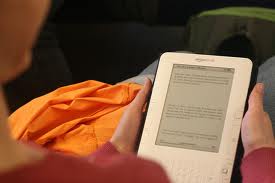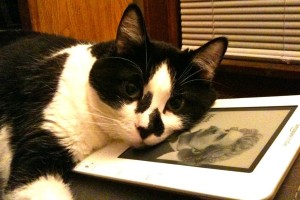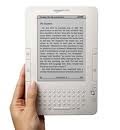Damned with faint praise
I was stuck on what to write for this week’s offering but as usual something came up, and it wasn’t that quesadilla I had for lunch. It is a wondrous age we live in, and it seems that for good or for ill, something new is developed every day. So it is that there is a new development that the authors in our audience — particularly the mid-list folks who, imho, provide the solid backbone of the publishing industry — might want to be made aware of. Amazon is slowly adding a feature, or element, or whatever you might want to call it, on their book title pages titled “What Do Customers Ultimately Buy After Viewing This Item?” and which consists of a list of four or five titles, accompanied by the percentages of buyers who bought another book to the exclusion of the one they were originally looking up. This is to be distinguished from the “Customers who bought this book also bought” (emphasis added) feature. No, the “ultimately buy” feature tells the world what percentage of the audience looked at your book, found it wanting, and bought another book by someone else instead! It’s kind of like sitting in the autograph room at Bouchercon and hoping that someone will come up to your table, and just as someone does, their friend says, “oh, let’s go meet ______ ____________ instead.” It’s not being done with every book by every author, and, at least as far as I can tell, it’s only being utilized by amazon.co.uk. Maybe the Brits have thicker skins, though I don’t think so: I learned of this feature from a British author, whose novel had received the implicitly rough treatment, and the author was, uh, not happy.
I don’t think that this new feature is going to be welcomed with open arms by authors on either side of the Atlantic. Am I wrong, here? What I sense is a suggestion to the effect that if you’re looking for something to read, you might find something you like better elsewhere, and we have a jury of your peers to tell you so. As for the authors themselves, I could see this busting up some friendships. I mean, if you have ten books published, and Amazon is noting with each one that a certain percentage of people would rather buy a book by, say, Author A, that might create a problem. I really don’t see how it helps anything, either. It’s might be intended as a sort of “Recommended If You Like” referral, but it isn‘t, and they have one of those already with their “ People Who Bought this book also bought“ feature. It strikes me as more of a “Why would you want to read this when you could read that?” Or to put it another way, it’s almost like an article in your neighborhood newspaper which states that while your wife might still love you, she would rather be tupped by your next door neighbor, as would seventy per cent of the women on the street. Oh, and your Kindle books aren’t safe from this thing, either.
So what do you think of this? I would include a link to an example of this, but I don’t want to embarrass anyone, even indirectly. But have you seen this? Have you been a — I hate to use this term, but there is no other — victim of it? And should Amazon, UK or US or otherwise, get some feedback about it? What say you?



